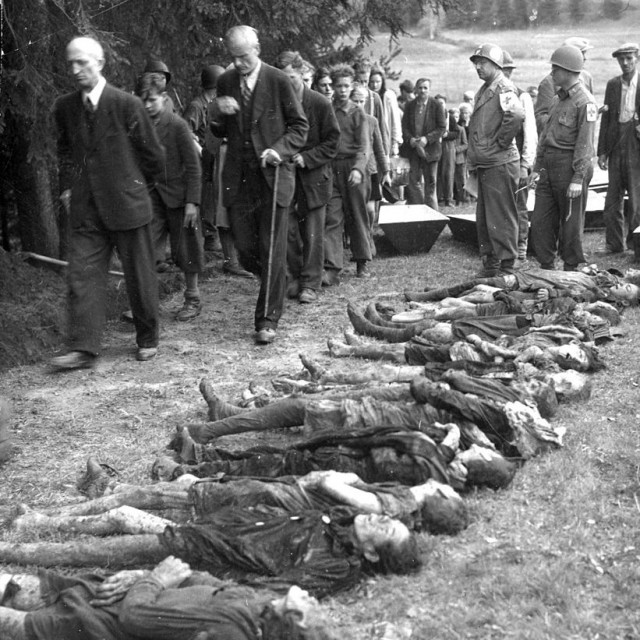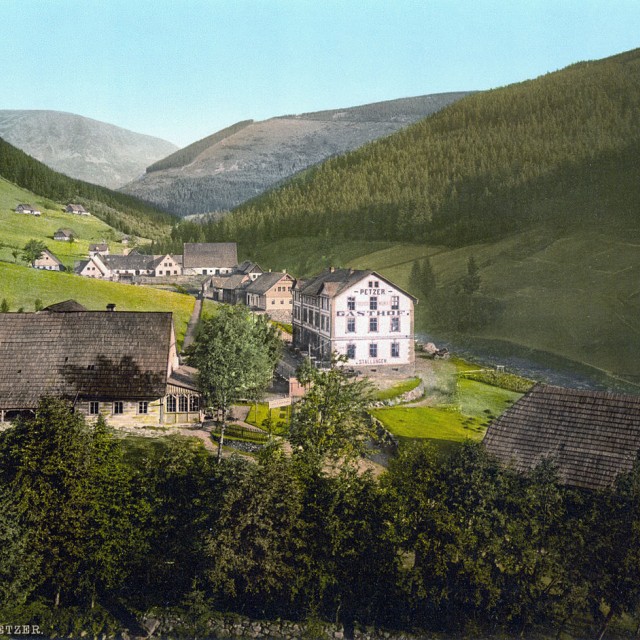I wouldn’t have been able to sleep in those beds
Eva Novotná comes from a mixed Czech-German marriage which was quite unusual in Pec pod Sněžkou according to her recollections. When the expulsion of Sudeten Germans had started after the war, her mother, (who was of German origin), was not included because she had accepted Czech citizenship before the war. “Our German neighbours who were to be expelled would go to my parents and ask them if they could hide some of their precious belongings for them, but my father would say: ‘I won’t hide anything, I have nowhere to hide the things.’ Others hoped that if my parents would take their cottage, they would be able to stay there as a labour force,” she recalled. When Mrs. Novotná’s father was offered to choose any house he liked, since their house had burnt down due to the carelessness of German soldiers, he refused to do so: “My mother knew whose house was which and kept saying that she wouldn’t have been able to sleep in those beds, they wanted their own place.” When the expulsion itself had begun, Mrs. Novotná’s father was at first saying: “Some form of justice probably exists, now that the events had taken such a turn.” Then he started to help some people who were ready to move away and he started to perceive the situation from a different viewpoint. “Our aunts Anna and Hilda had to go into the transport too, me and my mother would bring them food, and it was a strange feeling. We would talk to them over a wire fence, me and my mother on the outside and both our aunts and their children, my cousins, behind the fence," she recalled. Mrs. Novotná’s mother had never again spoken to her children in German since the start of the war.
Hodnocení
Abyste mohli hodnotit musíte se přihlásit!
Trasy
Příběh není součastí žádné trasy.
Komentáře

The expulsion of Germans from Czechoslovakia
The political representation in exile and the home resistance movement gradually started to contemplate a partial or a complete expulsion of Germans from Czechoslovakia on the backdrop of intensified Nazi terror, (especially during the Heydrichiade), and in connection with the role this three million minority had played in the breakup of Czechoslovakia. This request which was accepted by all the representatives across the political spectre, was during the years 1942-1943 also accepted by the Allied forces. The Potsdam Conference had created the international legal framework for the expulsion. Until a decision was reached at the conference at the beginning of August 1945, a so called wild expulsion had been taking place, which was accompanied by a great number of excesses and which had caused the death of thousands of innocent people, (the true number of victims is disputed); from January 25th 1946 to October 29th the deportations of the German minority were taking place “in an orderly manner.” According to an official report which president Beneš had received at the start of 1947, during the expulsion 2 170 598 Germans were deported from Czechoslovakia, but it is also necessary to include the number of hundreds of thousands of Germans who had escaped shortly after the end of the war. The post-war expulsion of Germans is still being discussed and disputed. In the disrupted post-war atmosphere a peaceful coexistence of Czechs and the German minority would most probably be unthinkable, but on the other hand it is not possible to overlook the fact that the expulsion of the group of inhabitants who had lived in the Czech border regions for centuries was the source of an irreparable material and cultural damage for our country. Source: pametnaroda.cz



